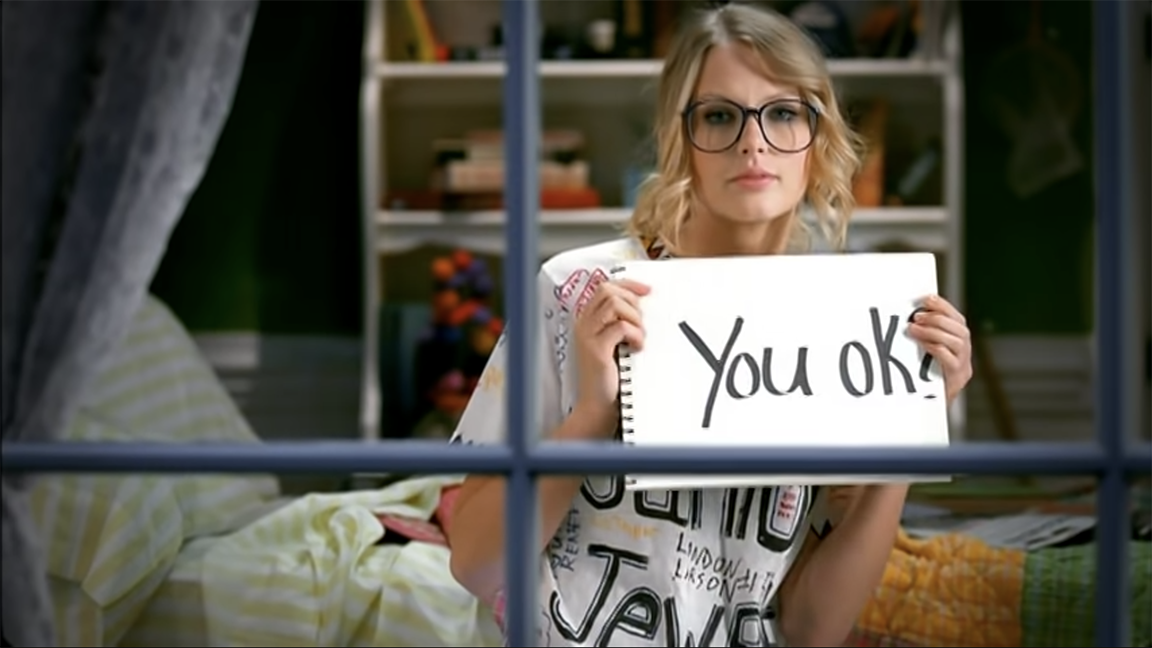Views expressed in opinion columns are the author’s own.
Taylor Swift has taken the music industry by storm with the release of her new album, Red (Taylor’s Version), a re-recording of her 2012 album Red. Perhaps you’re like some of my friends — devout “Swifties” — who enjoyed hearing remastered versions of some of their favorite songs. Perhaps you’re like me and (somehow) never got attached to Swift, but after hearing the critically-acclaimed album, you’re a newly-minted fan.
It’s been so easy to get caught up in the excitement of this album’s re-release that it’s become just as easy to forget why this had to occur.
Taylor Swift signed a contract with Big Machine Records in 2005, just as she was beginning her path to stardom. This contract was set to expire in 2018, and since Big Machine was rumored to be up for sale, Swift made public her intentions to find a new label. But, before she could do that, the label — and her masters, or the original recordings and creative licensing of her first six albums — was sold to Scooter Braun, a man she’s accused of “incessant, manipulative bullying.”
To summarize, Taylor Swift was left without the control of her defining albums, with that control being sold to a man who had repeatedly hurt her in the industry. This left her with the choice to either accept defeat, or re-record and rerelease her older songs to reclaim her masters; she chose the latter.
Swift’s experience acts as an unfortunately common example of how the music industry manipulates and profits from its megastars. When young and vulnerable artists are forced to sign away the masters to their music in entry-level contracts, they are kept tethered to abusive and ever-changing management. It’s time we eradicate this practice — both socially and legally — from the music industry.
When an artist loses control of their masters, they lose control of their life’s work. In Swift’s case, this meant she was not allowed to perform songs from her first six albums — even though she wrote them — due to her original label fearing it constituted “rerecording” her own music. Swift would have to go on and sign a new deal with Republic Records in order to reclaim her work. Until this happened, though, Swift was not able to capitalize on the songs that made her famous, and most importantly, she would have to disappoint her fans due to an exploitative legal clause.
These labels have also been known to control their artists physically as well. Pop singer JoJo re-recorded her first two albums after her initial label, Blackground Records, had her inject herself with supplements in order to lose weight, and withheld her music until she complied. This practice left her with psychological damage, with which she combats to this day. These music labels are forcing artists to make a choice between their careers and their overall wellbeing, which is a choice nobody should ever have to make.
Perhaps the worst part about this “choice” is it often occurs when artists are vulnerable. Swift and JoJo were both very young when they signed these contracts that stripped themselves of their artistic agency, a choice which affected them decades later.
How is it fair that a record label can have this much control over an artist’s creative agency?
Being in the early stages in their careers, these artists didn’t have much leverage in their negotiations, but therein lies the point: They shouldn’t need leverage to be respected when it comes to legal arrangements.
Perhaps contracts could see artists give more of their earnings to the record label in the early stages of their career, or larger buyout clauses for artists looking to leave a specific label. Legal action might even be necessary to stop these record labels from taking advantage of more young artists — who are oftentimes female.
But the most imperative point, however, is that artists never lose the rights to their own masters. An artist’s creative agency is arguably the most important tool they have to use for their careers, and stripping them of it is unethical at best and vile at worst. Without control of their own music and life’s work, artists run the risk of being pawns in a larger corporate game, which completely strips them of the originality and uniqueness that draws artists to music in the first place.
Not every artist has the courage of JoJo and the popularity of Swift to actually reclaim and re-record their older works in the face of corporate exploitation. Therefore, I will continue to stream Red (Taylor’s Version), and hope this is “The Last Time” any artist has to go through this. While it might seem “Treacherous,” it’s imperative that record labels are held accountable and stop stripping artists of their masters in their entry-level contracts. Hopefully this re-recording of Red is “The Lucky One” that encourages structural adjustments, so someday we can look back on this once-exploitative industry and say “Everything Has Changed.”
Anthony Liberatori is a junior environmental science and economics major. He can be reached at alib1204@umd.edu.



